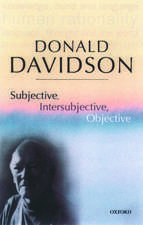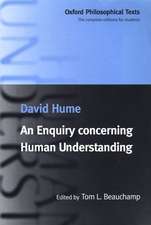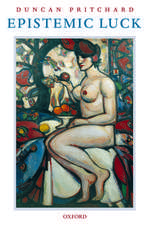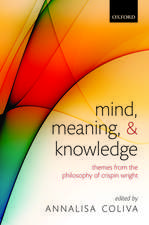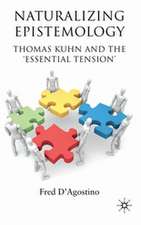The Varieties of Self-Knowledge: Palgrave Innovations in Philosophy
Autor Annalisa Colivaen Limba Engleză Hardback – 21 iul 2016
Din seria Palgrave Innovations in Philosophy
-
 Preț: 386.81 lei
Preț: 386.81 lei -
 Preț: 396.40 lei
Preț: 396.40 lei -
 Preț: 387.75 lei
Preț: 387.75 lei - 15%
 Preț: 637.59 lei
Preț: 637.59 lei -
 Preț: 387.38 lei
Preț: 387.38 lei - 15%
 Preț: 582.80 lei
Preț: 582.80 lei -
 Preț: 389.49 lei
Preț: 389.49 lei - 15%
 Preț: 700.29 lei
Preț: 700.29 lei - 15%
 Preț: 640.55 lei
Preț: 640.55 lei - 15%
 Preț: 647.40 lei
Preț: 647.40 lei - 18%
 Preț: 732.52 lei
Preț: 732.52 lei - 18%
 Preț: 894.46 lei
Preț: 894.46 lei - 18%
 Preț: 955.70 lei
Preț: 955.70 lei - 15%
 Preț: 534.50 lei
Preț: 534.50 lei - 15%
 Preț: 499.26 lei
Preț: 499.26 lei -
 Preț: 386.22 lei
Preț: 386.22 lei
Preț: 730.16 lei
Preț vechi: 890.44 lei
-18% Nou
Puncte Express: 1095
Preț estimativ în valută:
139.71€ • 146.65$ • 115.97£
139.71€ • 146.65$ • 115.97£
Carte tipărită la comandă
Livrare economică 10-24 aprilie
Preluare comenzi: 021 569.72.76
Specificații
ISBN-13: 9781137326126
ISBN-10: 1137326123
Pagini: 270
Ilustrații: XVI, 288 p.
Dimensiuni: 148 x 210 x 21 mm
Greutate: 0.52 kg
Ediția:1st ed. 2016
Editura: Palgrave Macmillan UK
Colecția Palgrave Macmillan
Seria Palgrave Innovations in Philosophy
Locul publicării:London, United Kingdom
ISBN-10: 1137326123
Pagini: 270
Ilustrații: XVI, 288 p.
Dimensiuni: 148 x 210 x 21 mm
Greutate: 0.52 kg
Ediția:1st ed. 2016
Editura: Palgrave Macmillan UK
Colecția Palgrave Macmillan
Seria Palgrave Innovations in Philosophy
Locul publicării:London, United Kingdom
Cuprins
Acknowledgments.- Credits.- List of abbreviations.-Introduction.- Chapter one: Varieties of Mental States.- 1. Sensations andperceptions.- The objectivity of perceptual representation.- Perceptualcontents.- Sensory states and sensations.- 2. Twokinds of propositional attitudes: dispositions and commitments.- Propositionalattitudes as dispositions.- Propositionalattitudes as commitments.- 3. Emotions.- Emotions as sensations.- Emotions asevaluative judgments.- Emotions as felt bodily attitudes.- Emotions asperceptions of evaluative properties.- The borderline view of emotions.- 4. Summary.- Chapter two: Varieties of Self-Knowledge.-1. First personal self-knowledge.- Groundlessness.- Transparency.- Authority.- 2.Counterexamples from content externalism and cognitive science? .- 3. Third-personalself-knowledge.- 4. Summary.- Chapter three: Epistemically Robust Accounts.- 1.Inner sense theories: Armstrong and Lycan.- 2. Inferential theories: Gopnik andCassam.- 3. Simulation-theories: Goldman and Gordon.- 4. Summary.- Chapter four: Epistemically Weak Accounts.-1. Peacocke’s rational internalism.- 2. Burge’s rational externalism.- 3. Evans’ transparency method.- 3.1Fernández’ epistemic account.- 3.2 Moran’s deliberative account.- 4. Summary.-Chapter five: Expressivism about Self-Knowledge.- 1. At the origins of expressivism:Wittgenstein.- 2. Bar-On’s neo-expressivism.- 3. Summary.- Chapter six: Constitutive Theories.- 1. Theleft-to-right side of the Constitutive Thesis: Shoemaker.- 2. The right-to-leftside of the Constitutive Thesis: Wright.- 3. The two sides of the ConstitutiveThesis: Bilgrami.- 4. A metaphysically robust kind of constitutivism: Coliva.- Thefirst half of the constitutive thesis: transparency.- Objections from empiricalpsychology.- The second half of the constitutive thesis: authority.- 5. Summary.-Chapter seven: Pluralism about Self-Knowledge.- 1. Propositional attitudes ascommitments: the limits of constitutive accounts.- 2. Sensations, basicemotions and perceptions and perceptual experiences: constitutivism meetsexpressivism.- Sensations.- Basic emotions.- Perceptions and perceptualexperiences.- 3. Propositional attitudes as dispositions and complex emotions:third-personal self-knowledge.- 4. Summary.- Appendix: Moore’s Paradox.- 1. Mooreanand Wittgensteinian analyses.- 2. The constraints on any feasible account ofMoore’s paradox.- 3. What Moore’s paradox isn’t about: Jane’s off case.- 4. WhatMoore’s paradox is about—first pass.- 5. What Moore’s paradox is about—secondpass.- 6. An objection.- Notes.- Bibliography.- Name index.- Subject index.
Notă biografică
Annalisa Coliva (PhD University of St Andrews, UK and Vercelli, Italy)is Full Professor in the Philosophy Department at the University of Californiaat Irvine. She was previously Fulbright Fellow at Columbia University, US,Alexander von Humboldt Fellow at Heidelberg University, Germany, and Fellow ofthe Italian Academy at Columbia University. She has authored nine books, editedsix, and published several articles in international journals.
Textul de pe ultima copertă
This book explores the idea that self-knowledgecomes in many varieties. We “know ourselves” through many different methods,depending on whether we attend to our propositional attitudes, our perceptions,sensations or emotions. Furthermore, sometimes what we call “self-knowledge” isnot the result of any substantial cognitive achievement and the characteristicauthority we grant to our psychological self-ascription is a conceptualnecessity, redeemed by unravelling the structure of several interlocking concepts.This book critically assesses the main contemporary positions held on theepistemology of self-knowledge. These include robust epistemic accounts such asinner sense views and theory-theories; weak epistemic accounts such astransparency theories and rational internalism and externalism; as well asexpressivist and constitutivist approaches. The author offers an innovative“pluralist” position on self-knowledge, emphasizing the complexity of thephenomenon and its resistance to any “monistic” treatment, to pose new andintriguing philosophical challenges.

